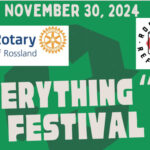BRENDA GILL: Glycemic Index Eating- The Best Way to Reduce Excess Weight- Part One of Four
(This article is summarized from the Fat Busting GI Angel)
Food consists of five basic ingredients which build, run and energize our body. Three of these have calories: protein that builds our cells, carbohydrates that create energy and reserves and fats for future needs. The other two are fibre that help the body digest the nutrients and water that aids digestion and maintains cells.
Our body doesn’t burn its energy producing fuel as a car burns its fuel. A car primarily wants to run, whereas, our body has evolved, so, not only does it want to run, but, it wants to ensure its survival. In the past, humans were often faced with feast or famine and the body developed and used reserves in the form of body fat. Over time, humans have organized a steady supply of food. However, our body still continues to build reserves around our midriff and buttocks. Also, people’s energy expenditure has changed remarkably. Constant physical work is largely out, so, we have excess nutrients circulating in our bloodstream more often than not. These get stored as fat reserves.
Our bodies are accustomed to a certain level of nutrition. For example, if your body is used to an intake of 2500 calories/day and you reduce your diet to 2000 calories, you will lose some weight initially. But your body will sense hard times and want to build more reserves for survival. So it gives you less energy for your daily activities and tries to store more fat. Therefore, you stop losing weight and you may start gaining weight again.
If you continue to reduce your intake, your body will repeat the process. Less energy is felt as tiredness and feeling low, which tends to make you give up. Most will go back to eating the way they did before and really put on weight because of the reduced metabolic rate.
Not all calories are converted into fat and deposited–protein does not produce fat reserves. So, fish, buffalo/lamb, eggs, soy products don’t count as fat producers in a sensible diet. What really matters is the blood sugar level generated by the various types of food you eat. That’s what makes you gain weight or lose weight.
Carbohydrates (grains/sugars/cereals/fruit/veggies) get broken down and enter the bloodstream as glucose (blood sugar). The increased blood sugar causes the pancreas to release insulin into the bloodstream. Insulin helps blood sugar deposit into body cells to produce energy or, if there is excess blood sugar, store it as fat. Therefore, to deposit fat into cells, you need insulin in the bloodstream. Insulin is triggered by blood sugar, and blood sugar is created by carbohydrates. Insulin remains in the bloodstream until the blood sugar level reduces to normal levels.
This takes one to three hrs after a sweet or starchy meal or snack. This typically leads to an oversupply of insulin, which then works at lowering the glucose level below its normal range. This creates cravings and hunger pangs, which then often leads to another round of eating, blood sugar increase and insulin production. Therefore, you end up with fluctuating energy levels and those familiar “lows” with tiredness/hard to focus/concentrate at 11 am/1pm and 3pm after carbohydrate meals.
NEXT: What foods should we eat?
Brenda Gill is a naturopath practicing in Rossland.

























